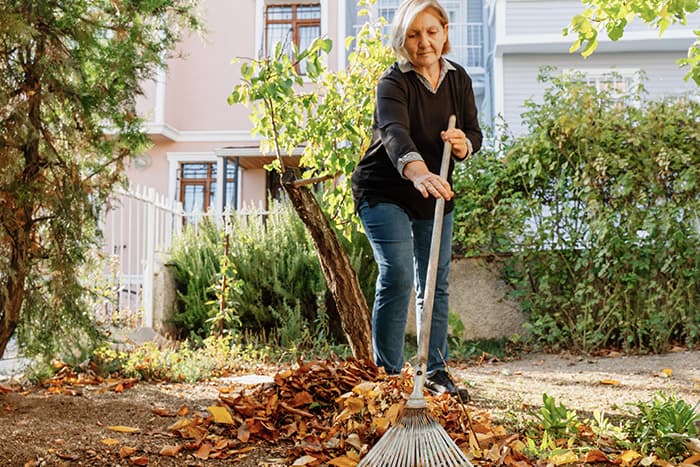As the leaves start to change and the air grows crisp, many people get ready for their annual fall cleaning rituals. However, for many elderly individuals, this seasonal chore can be a daunting task. Aging bodies and declining mobility can make simple cleaning activities like dusting, vacuuming, and window washing challenging and potentially dangerous.
That's why it's important to find ways to make fall cleaning easier and more manageable for the elderly. By implementing a few strategic tips and adjustments, the annual deep clean can be transformed from an arduous ordeal into a more comfortable and accessible experience. In this article, we’ll explore strategies for helping senior individuals and their caretakers make fall cleaning easier and more accessible so they can enjoy a clean and tidy home.
Declutter Before Deep Cleaning
Before diving into the deep cleaning tasks associated with the change of seasons, it can be helpful for seniors to focus first on decluttering their living spaces. Clutter can pose serious safety risks for seniors, increasing the likelihood of trips, falls, and other accidents. Decluttering helps create a more open, navigable environment that reduces these hazards.
Additionally, excessive clutter can make cleaning itself much more difficult and time-consuming for the elderly. Dusting, vacuuming, and organizing become exponentially harder when surfaces are covered in knick-knacks, papers, and other items. Streamlining possessions allows seniors to work smarter, not harder when it comes time to deep clean. It also makes it easier for family members or caretakers to lend a hand, as they won't have to work around piles of stuff. By prioritizing decluttering first, the elderly can set themselves up for a more efficient, manageable, and safe fall cleaning process overall.
Ask for Help and Support from Your Loved Ones
For many elderly individuals, the physical demands of fall cleaning can quickly become overwhelming. Fortunately, loved ones and family members can play a role in lightening the load and ensuring the process is manageable. One of the most impactful ways to assist is by simply offering an extra set of hands. Whether it's tackling larger tasks like window washing or breaking down chores into more manageable steps, the presence and support of younger, able-bodied helpers can make all the difference.
Beyond physical assistance, loved ones can provide valuable organizational support. They may help sort through belongings, donate or discard unwanted items, and establish efficient storage solutions. They can also schedule cleaning sessions in advance, ensuring the work is spread out over time rather than tackled all at once.
Split Up Cleaning by Room or Task
One aspect of cleaning that may seem overwhelming is simply knowing where to start. To help stay motivated and organized, seniors may want to break up the cleaning into chunks rather than cramming it all into one day. They may benefit from using several days to tackle spaces in the home. For example: take one to two days for the kitchen and living room, one day each for bedrooms, and one day for bathrooms. This will make the task more manageable and less strenuous for seniors.
Use Ergonomic and Accessible Cleaning Tools
The use of ergonomic cleaning tools can greatly improve the experience and make the process safer and more manageable. Older adults can research and purchase ergonomic cleaning tools and equipment designed to reduce strain on aging bodies. Items like long-handled dusters, lightweight vacuums, and sturdy step stools can dramatically improve the elderly's ability to complete tasks safely and comfortably.
Explore More Healthy Aging Tips with The Medicare Helpline
With the right planning and support system in place, fall cleaning becomes a collaborative effort that empowers the elderly to maintain a healthy, well-kept home. Managing household tasks is only one aspect of healthy, independent aging. For more resources, check out our additional lifestyle articles from The Medicare Helpline.
More Lifestyle Articles
